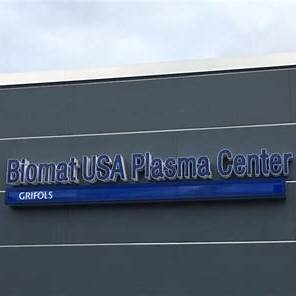NEWS
Plasma Donation Pittsburgh: Everything You Need to Know

Plasma donation is a life-saving act that helps thousands of people with medical conditions such as immune deficiencies, bleeding disorders, and burn injuries. If you live in Pittsburgh and are considering donating plasma, this guide will provide everything you need to know, from eligibility criteria to the best donation centers.
What Is Plasma and Why Is It Important?
Plasma is the liquid component of blood, making up about 55% of its total volume. It consists mostly of water but also contains proteins, antibodies, and clotting factors that are essential for various medical treatments. Plasma-derived therapies are used to treat rare and chronic conditions, making plasma donation crucial for many patients.
How Plasma Donation Works
Plasma donation is similar to a regular blood donation, but with one key difference: the blood is drawn, plasma is separated, and the remaining components (red and white blood cells) are returned to the donor. The process typically takes 60–90 minutes and is done using a machine called a plasmapheresis device.
Steps Involved in Plasma Donation
- Registration – Donors must provide identification and medical history.
- Health Screening – A mini-physical is conducted, including a blood pressure check and iron level test.
- Plasma Extraction – Blood is drawn, plasma is separated, and other components are returned.
- Rest & Recovery – Donors rest for a few minutes before leaving.
Who Can Donate Plasma?
To donate plasma in Pittsburgh, you must meet the following eligibility requirements:
- Be at least 18 years old
- Weigh at least 110 pounds
- Be in good overall health
- Pass a medical screening and blood tests
- Not have donated plasma more than twice a week
Some factors, such as recent tattoos, piercings, or certain medical conditions, may temporarily disqualify you from donating.
Top Plasma Donation Centers in Pittsburgh
Several plasma donation centers in Pittsburgh provide a safe and regulated environment for donors. Below are some of the best options:
1. BioLife Plasma Services
- Location: 3470 William Penn Hwy, Pittsburgh, PA
- Features: State-of-the-art facilities, compensation for donations, and a loyalty program.
- Website: BioLife Plasma
2. CSL Plasma
- Location: 1330 Western Ave, Pittsburgh, PA
- Features: Competitive compensation, convenient appointment scheduling, and a referral program.
- Website: CSL Plasma
3. Octapharma Plasma
- Location: 810 Clairton Blvd, Pittsburgh, PA
- Features: High donor payments, promotions, and a clean facility.
- Website: Octapharma Plasma
4. Grifols Plasma Center
- Location: 4625 Liberty Ave, Pittsburgh, PA
- Features: Experienced staff, comfortable donation experience, and financial incentives.
- Website: Grifols Plasma
How Much Do Plasma Donors Get Paid in Pittsburgh?
Plasma donation centers in Pittsburgh compensate donors based on various factors, including frequency of donation, weight, and promotional offers.
- First-time donors can earn between $50-$100 per donation.
- Regular donors typically make $200-$400 per month if donating twice per week.
- Some centers offer bonus programs for repeat donors.
Check with individual donation centers for their specific compensation structure and ongoing promotions.
Health Benefits and Risks of Plasma Donation
Benefits of Donating Plasma
- Helps save lives – Plasma is used in life-saving treatments.
- Compensation – Earn extra income while making a difference.
- Boosts health awareness – Regular health screenings can help detect issues early.
- Can stimulate blood cell production – Encourages the body to produce new plasma.
Possible Side Effects
- Fatigue or dizziness due to fluid loss.
- Mild bruising or discomfort at the needle insertion site.
- Dehydration – Plasma is mostly water, so drink fluids before and after donation.
Most side effects are minor and can be avoided by staying hydrated and eating a nutritious meal before donating.
Also read: Kendra Scott Donation Request: How to Apply and Get Approved
Preparing for Your Plasma Donation Appointment
To ensure a smooth donation experience, follow these tips:
- Drink plenty of water – Hydration helps with plasma recovery.
- Eat a protein-rich meal – Foods like eggs, chicken, and beans are excellent choices.
- Avoid fatty foods – High-fat meals can interfere with plasma separation.
- Get enough rest – Being well-rested helps your body recover faster.
- Bring proper ID – A government-issued photo ID and proof of residency are required.
FAQs About Plasma Donation in Pittsburgh
How often can I donate plasma in Pittsburgh?
You can donate plasma twice a week with at least 48 hours between donations to allow your body to replenish plasma levels.
Is plasma donation safe?
Yes. Plasma donation is regulated by the FDA, and centers follow strict safety guidelines to ensure donor well-being.
Do I need an appointment to donate plasma?
While walk-ins are accepted at some centers, scheduling an appointment is recommended for a faster experience.
Can I donate plasma if I have a tattoo or piercing?
Most centers require a waiting period of 4 to 12 months after getting a tattoo or piercing to ensure the safety of the plasma.
What should I bring to my first plasma donation?
Bring a valid photo ID, proof of residency, and social security number or equivalent documentation.
Can I donate plasma if I am on medication?
It depends on the medication. Some drugs may temporarily disqualify you, so check with the donation center for specific guidelines.
Does donating plasma weaken my immune system?
No. Plasma donation does not compromise immune function. Your body replenishes plasma within 24–48 hours.
Final Thoughts on Plasma Donation in Pittsburgh
Plasma donation is a rewarding experience that benefits both donors and recipients. Pittsburgh has several high-quality donation centers that offer a safe environment and compensation for your contribution. If you meet the eligibility criteria and are in good health, consider donating plasma to make a difference in someone’s life.
-

 HUMAN RIGHTS3 months ago
HUMAN RIGHTS3 months agoMercy Ships Scandal: Unraveling the Truth Behind the Allegations
-

 SOCIAL AWARENESS3 months ago
SOCIAL AWARENESS3 months agoIs Helping Hands Legit? Unveiling the Truth Behind This Organization
-

 SOCIAL AWARENESS3 months ago
SOCIAL AWARENESS3 months agoNational Charity League: A Legacy of Leadership and Service
-

 HUMAN RIGHTS4 months ago
HUMAN RIGHTS4 months agoHuman Rights Issues: Challenges and Progress in a Globalized World
